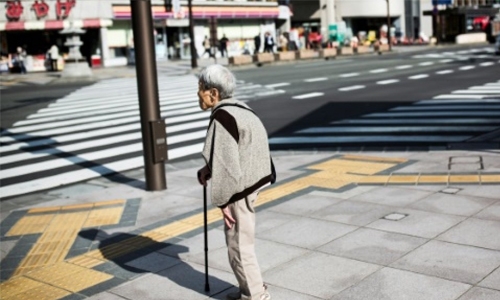In historic first, G20 weighs ageing as global risk
Ballooning healthcare costs, labour shortages and financial services for the elderly: for the first time yesterday, the world’s top policymakers are tackling economic issues relating to ageing and shrinking birthrates. “What we are saying is, ‘If the issue of ageing starts to show its impact before you become wealthy, you really won’t be able to take effective measures against it’,” Japanese Finance Minister Taro Aso, the meeting’s host, told reporters late Saturday.
Longer life-expectancy and sliding birth rates, particularly among wealthy nations, have resulted in a rapid expansion of the elderly population in places like Spain, Italy and South Korea, according to the Organisation for Economic Co-operation and Development. But the pattern is not limited to the rich world, with emerging powers like Brazil and China also facing “rapid demographic change” relative to their early development stage, according to the OECD. By 2050, the world is projected to have more than two billion residents aged 60 and above, more than double the number in 2017, OECD says.
But many economies have failed to update their pension and employment systems to adjust to the changing demographics, experts warn. This has resulted in fiscal and debt risks for whole countries, as well as individuals. OECD chief Angel Gurria sounded the alert in an interview with AFP on the sidelines of the meeting in the western Japanese city of Fukuoka. “You basically have a very large portion of mankind that is ageing and then the workforce is shrinking.
But I would say the G20 in particular are ageing faster,” the OECD secretary-general told AFP. “These are trends that will continue, I am afraid. It’s not something you can suddenly stop.” With its fast-shrinking workforce, Japan finds itself scrambling to find ways to cover the cost of its national pension.
Related Posts

